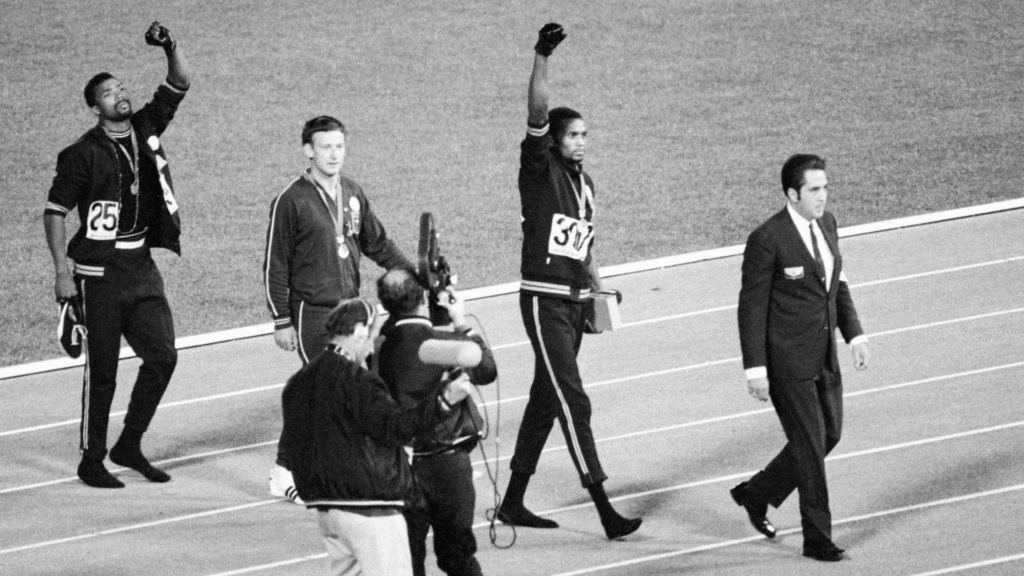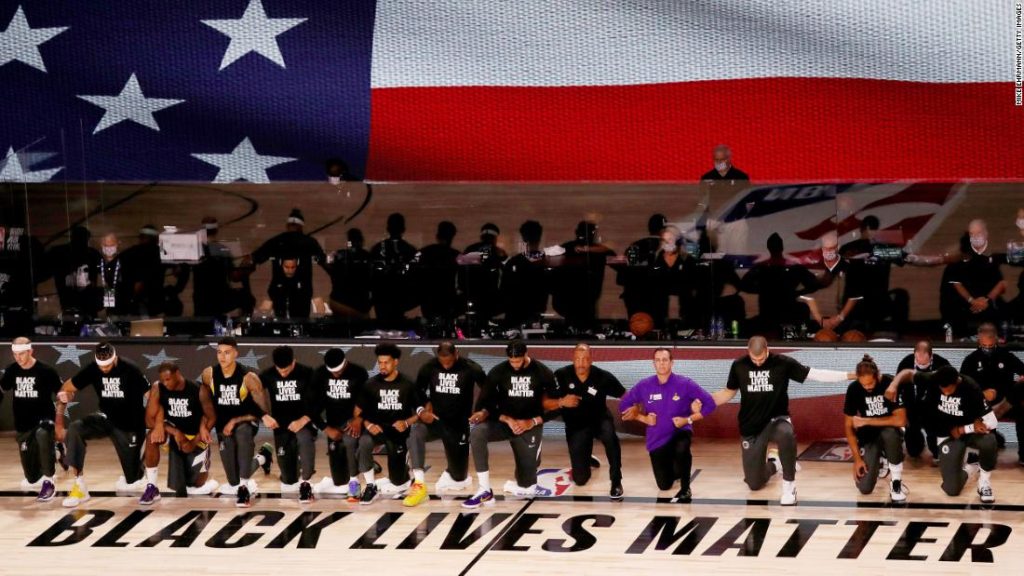Despite having two juxtaposed, inherent natures, sports and politics have been gradually intertwined over the past 60 years as athletes became elevated to celebrity status as broadcast technology made exposure to sports increasingly common and powerful. Iconic images from the advent of the fight for civil rights have paved the way for athletes in today’s sociopolitical climate to take a stand and speak out like their legendary predecessors.

Although the pandemic has slowed down and shaken the process and normalcy of the traditional American pro-sports model, athletes and leagues around the country have found ways to take a stand. The NBA began speaking out about the demand for police and justice reform through jersey modifications and featuring on court logos and league branding. MLB and The NHL followed suit by using similar tactics through on field branding, social media strategy, and player driven conversations and initiatives. The Milwaukee Bucks of The NBA then led a “walk out” by refusing to play a playoff game in order to drive conversations about issues “bigger than sports.” In an unprecedented time for American sports, athletes from every major league in the United States sat out and refused to play sports to bring attention to issue that not only were important to the athletes but important to humanity.

The actions were generally received well on Twitter and other social media platforms. However, the ratings for nearly every sport league has been recently trending downwards at a concerning rate. The most outspoken of the leagues however has taken a massive hit as the NBA Finals are down 48% from the prior year. Many outspoken sports personality columnists are citing a “go woke go broke” narrative that assigns this rating drop to a discord with the majority of the sports audience wanting sports and politics to be autonomous and in turn “boycotting” watching any sports as a counter protest.
A 2020 Harris Poll cites that 38% of fans think the NBA is too political yet I was not able to find any other recent polls that cite a strong, bipartisan disconnect in sports and politics that suggest that a wide boycott is to blame for ratings sinking to a historic low. A Washington Post poll demonstrates a possible argument for the opposite as it found that over 60% of the sampled Americans believe that athletes should be able to use their platforms to speak out about social justice. However, although individuals may agree with athletes right to use their platform, they may also decide to use their right to direct their time elsewhere as a statement of protest. There is no convincing data with proper sampling that measures this sentiment. For now, the ratings are the only objective empirical evidence available.
A few explanations for the ratings drop have been offered but still do not hold water as a cause but rather are more representative of correlation. For example, the pandemic has allowed for all four major American sports leagues to have games at the same time. This unprecedented scheduling can and appears to have led to ratings cannibalization between fans of multiple sports. It is also true that all leagues have suffered ratings drops despite high stakes, well-paired matchups. However, it does not explain why the NBA, the most socially active league has suffered the largest drop in ratings.
The ratings situation within the NBA has shocked even Adam Silver, the commissioner of the league as the finals matchup this year features the most popular, dynamic player in the league playing for the largest fan base and market in the league. Although the sports comeback should in theory invigorate a starved fan base the new, forced formats for the leagues may have created a sentiment of irrelevance as fans deem these make up games “fake seasons” and in turn decide to not watch something they feel does not matter.
The only proper path to deciding whether or not political discourse has contributed to the collapse of the ratings for sports is to continue to analyze the trends in relation to league statements, actions, and outspokenness regarding politics. Personally, I feel that the ratings will bounce back for all leagues despite the possible public disdain for harmless and rightful call to social actions. Either way, the ratings hits have definitely cast doubt on sports business models and are leaving PR specialists, marketers, and strategist looking for a scapegoat to kill off to bring TV revenue back to the standard. Are politics the true root of the ratings collapse or are strategists and pundits looking for an inflammatory scapegoat?
Reference Links
https://sports.yahoo.com/2020-nba-finals-ratings-historically-202732628.html
https://sports.yahoo.com/why-the-narrative-about-declining-nba-ratings-is-wrong-172402656.html
https://www.washingtonpost.com/sports/2020/09/10/poll-nfl-anthem-protests/
https://www.si.com/nba/cavaliers/nba-amico/basketball-playoffs-television-ratings

5 Responses to “Get Woke, Go Broke?” Finding a Scapegoat for Suffering Ratings